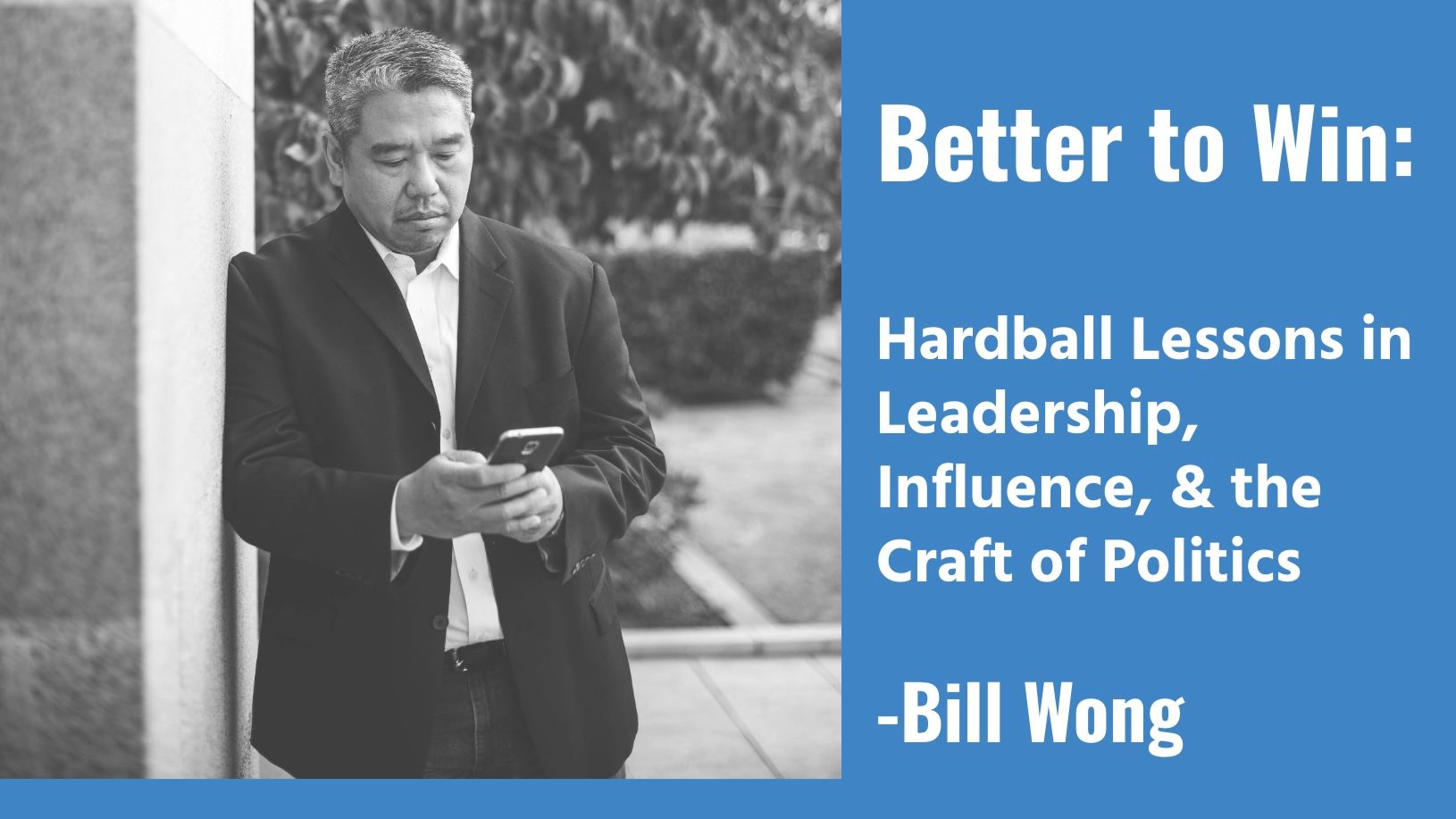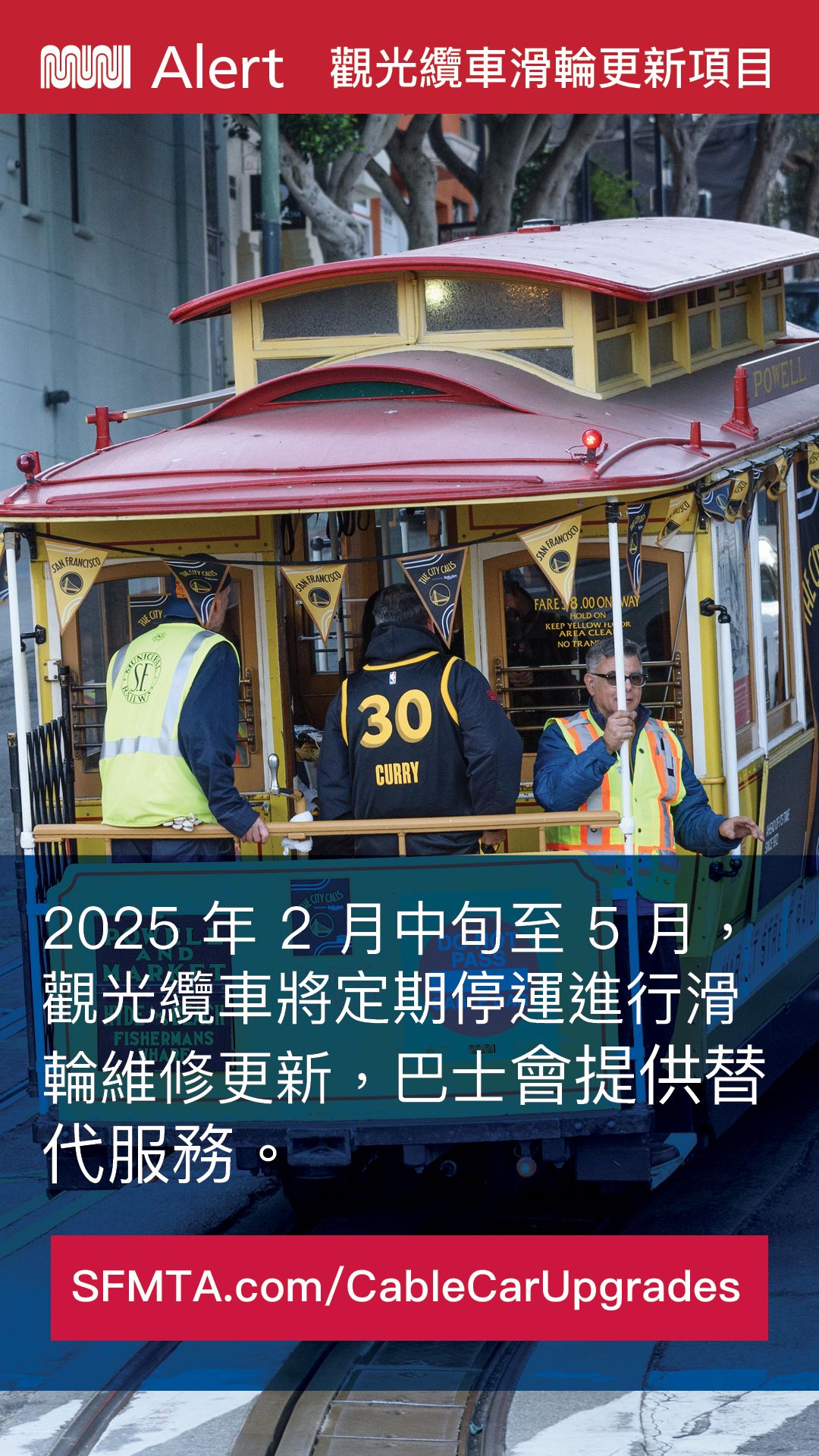Better to Win: An advice from renowned political strategist Bill Wong


(SAN FRANCISCO) In recent years, fewer and fewer Chinese and Asian American candidates have been successfully elected to local, state, and federal seats in the San Francisco Bay Area, although Chinese and Asian Americans are the fastest growing ethnic communities. "A seat at the table is not given; it is taken," Bill Wong, one of the Chinese American pioneers in political strategy in California, wrote in his new book and advised the Asian American candidates running for public offices.
Wong has been a renowned political advisor for a long list of elected officials and political campaigns in California for decades. Most recently he served 6 years as a senior political advisor to California State Assembly Speaker Anthony Rendon, who became the longest-serving Speaker of the State Assembly since Speaker Willie L. Brown. Wong had also served as Chief of Staff when Judy Chu was elected to California State Assembly in 2001. Chu was then elected to the Congress in 2009 up to present.
Prior to his retirement lately, Wong spent over 30 years in the state capitol at Sacramento providing strategic advices to elected legislators and working on political campaigns to elect Democrats to local, state, and federal offices.
Wong released his book and memoir, Better to Win: Hardball Lessons in Leadership, Influence, & the Craft of Politics, in March 2023. His book has been selected as an Amazon best seller, 2023 the Independent Book Publishers Association (IBPA) , and the National Indie Excellence Awards (NIEA) book award finalists.
Wong is one of the very few Asian American authors writing on the topic related to American politics. In the 2024 election year, Wong's book has become a resourceful guide for candidates and political campaign staffers to learn more skills of winning in their races.
"This book is meant to provide readers my perspective on the craft and power of politics. It examines the mindset and machinery involved in the use of power, the qualities of those involved in the game, and the sacrifices necessary to affect meaningful substantive change for those who don’t have a voice in the halls of power," Wong said.
Wong is an immigrant from China coming to the United States with his parents as an infant. His father started as a cook and his mother as a waitress. They later owned a small restaurant in a rural town north of Sacramento where Wong grew up.
In college, Wong earned his Bachelor degree in Political Science and a minor degree in Asian American Studies at the University of California at Davis which was not far from Sacramento. He has returned to the university as a guest lecturer.
When Wong started his career in politics in 1987 at State Capitol, there were only a handful of Asian Americans in the profession. In the meantime, no Asian legislators served in the California State Legislature until 1992.
Oxnard Mayor Nao Takasugi representing Southern California was a Japanese American
Republican elected to the State Assembly in 1992. Santa Clara County Supervisor Mike Honda who is also a Japanese American was elected to the State Assembly in 1996 and later elected as a member of the House of Representatives serving in Congress from 2001 to 2007.
By June 2022, a historic number of Asian Americans were employed in senior staff roles and held local, state, and federal elected offices statewide.
Wong said in his book that members of the Asian community are responsible for their own empowerment and representation. "While some of these gains are partially a function of population growth, it’s one of the objectives of this book to acknowledge the AAPIs that had the courage to run for office and the individuals and organizations that played an active and indispensable role in electing, appointing, and employing AAPIs in positions of power," Wong wrote.
"The takeaway lesson is this: A seat at the table is not given. It is taken. So take it. This book is about how to do it," Wong wrote. "Being a winner is not about being on a winning team. Being a winner is believing in the game and the team...no matter what."
Wong recounted a number of Asian American elected state legislators were dark horse candidates in highly competitive races.
"While the stories of Asian Americans winning big political fights might be few, they do exist," Wong wrote in his book that one of those few Asian Americans was Congresswoman Judy Chu.
Wong served as Chu’s Chief of Staff when she was elected to the State Assembly. "Judy Chu faced extraordinary odds and entrenched institutional opposition. There was racism
and sexism," Wong recalled. "There were many bad days when the outcome seemed bleak, betrayals were common, and friends were hard to find. But she prevailed each time because she and her team were always prepared, never gave up, and never backed down."
Chu began her political career as an elected School Board Member, then a Monterey Park City Council Member with three terms as Mayor. Prior to winning the election to the State Assembly in 2001, Chu had lost two previous races for Assembly.
Even though Chu’s Assembly District covering Monterey Park had a significant Asian American population, but Wong said the votes were not enough for Chu to overcome the larger and more politically sophisticated Latino population. "I made it my personal mission to help Chu win this seat,” Wong wrote.
Chu was the first Asian American to chair any most powerful committees in the Assembly. Wong remembered Chu was assigned to the smallest office in the State Capitol building when she first elected to the State Assembly. In subsequent years, Chu became the chair of the Assembly Appropriations Committee.
"Sometimes we think legislators only take on the big policy fights for large constituencies. Chu was different," Wong admired Chu. "She and her staff were deeply committed to giving a voice to AAPI immigrants who didn’t speak English and didn’t understand how to get help from the government."
Chu was elected to the House of Representatives in 2009 and re-elected many terms up to the present as the first Chinese American woman elected to serve in Congress in U.S. history.
Despite the number of Asian American elected officials beginning to grow in California in the 2000s, Wong said the growth would be unsustainable without building the political infrastructure necessary to support viable but under-resourced Asian candidates.
Insufficient financial support has been one of factors of why Asian American candidates were not been able to get elected, while the Asian population has reached to 16% in California. "The overall support did not come close to meeting the full political spending potential of America’s wealthy AAPI population," said Wong.
"However, if we don’t start making a different decision moving forward, we will never solve the dilemma of why we have been so powerless and ineffective at stopping the politically instigated epidemic of anti-AAPI hate that has terrorized our communities," Wong advised.
When asked about the current political climate in the San Francisco Bay Area, fewer Chinese and Asian American candidates have been elected to all levels of public offices. "This is a pipeline issue. AAPI candidates in the SF Bay area usually base their viability on demography and 'qualifications'. However, sustained representation as demonstrated by the Latino and Black community is based more on political infrastructure, long-term planning, and candidate recruitment and development," Wong responded.
"AAPIs in the SF Bay area today are too factionalized and invest too little in building an effective political machine to support AAPI candidates," Wong credited late community leader Rose Pak for her contribution to the elevation of more Chinese and Asian candidates to public offices.
"Rose Pak invested a tremendous amount of time and effort into building and maintaining a political machine in San Francisco and that was why AAPI candidates prospered while she was alive," Wong said.
"In the San Gabriel Valley, Congresswoman Judy Chu and her husband, former state Assemblyman Mike Eng, have built a strong and effective political infrastructure that has delivered an AAPI to the state Assembly for two decades and nurtured scores of AAPI local elected officials ready to run for higher offices," Wong said. "Sustaining long term AAPI representation in the halls of power requires leadership, vision, resolve, discipline, and sacrifice."
San Francisco Supervisor Gordon Mar was defeated in his 2022 re-election bid within a major Asian district. Fremont Mayor Lily Mei was not successful in running for the State Senate in 2022. Both Mar and Mei were well-known elected officials in their Asian districts.
"There are no districts where an AAPI candidate is guaranteed a win. Most districts with significant AAPI voter populations still require AAPI candidates to build coalitions in order to win," Wong said.
All San Francisco mayoral candidates are currently trying to get more support from the Asian and Chinese voters in hiring Chinese American campaign staffers. "AAPI and Chinese American voters are far more sophisticated and engaged than they've ever been. This race will be decided by real issues and intense direct voter outreach," Wong shared his thoughts on the San Francisco mayoral race.
"It will not be decided by two free baos and a rally at Portsmouth Square or a walk through Chinatown. If the AAPI staffers are simply tokens, then they will not make much of a difference in this race and AAPI voters should not support the candidates they are associated with," Wong further said.
"If the AAPI staffers have significant campaign experience and are empowered to direct strategy at the senior staff level, then they could be the deciding factor in this highly competitive race for mayor."
- In a 52-2 vote, Chinese American Democratic Club endorses to recall Supervisor Engardio as a result of passage of Proposition K
- An amnesty program in San Francisco is back through July 1, 2025 to legalize existing awnings
- Opinion: Political betrayal warrants recall
- Do empty yellow loading zones best serve the San Francisco Chinatown community?
- T&T Supermarket, largest Asian grocery chain in Canada, announces to open at San Francisco City Center on Geary Blvd. in winter 2026
- (Breaking news: Charlene Wang wins in the Oakland's special election) Charlene Wang runs for Oakland District 2 Councilmember on April 15, 2025 to represent Oakland Chinatown
- Mayor Lurie announces plans to support small businesses including First Year Free program waiving fees for new businesses
- 12 speed safety camera systems out of 33 begin to operate in San Francisco by first issuing warnings instead of citations for 60 days






